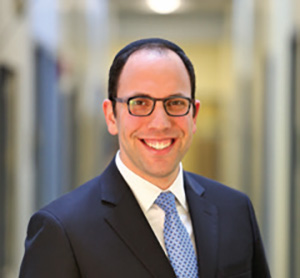
Beginning this week, when we read Parshat Shemot, through mid-February, when we read Parshat Tetzaveh, we find ourselves in a period of the Jewish calendar known as “Shovavim Tat”—an acronym made of the first letter of Parshiot Shemot through Tetzaveh. During this time, in Jewish communities across the world, husbands and wives dedicate extra energy and time to fortifying their marriages. From reviewing the technical laws of family purity to couples workshops focused on more effective communication styles, this time of year is reserved for strengthening the bedrock of marriage.
The impetus for this work this time of year stems from early in Parshat Shemot. Pharaoh decreed that the midwives who assisted Jewish women in delivering their children were to kill every boy. The midwives, Shifra and Puah, contemptuously refused to carry out the king’s orders. Instead, the Torah tells us, “va’techayena et he’yeladim, they let the boys live.” Healthy childbirth has always been miraculous, even more so when it flouts a governmental edict.
The process of delivering a child is not only stressful for the new baby, but strenuous for the new mother, too. (Even today, the maternal mortality rate right here in America is higher than in any other industrialized nation.) Enter Shifra and Puah, who, Rashi tells us, cared for and soothed the baby boy immediately after he was born.
The Midrash, in the name of Rav Levi, asks why the verse didn’t simply state “Va’techayena he’yeladim, they let the boys live.” What does the extra two letter word “et” add? Rav Levi suggests that the midwives didn’t only let the boys live; the midwives helped the mothers live, too. Shifra and Puah understood that after all of their work to support a new baby, a baby boy born to an unhealthy mother wouldn’t thrive.
Maternal health is critical not only when the fetus is in utero; it is equally critical after delivery. That’s because when a baby is born into this world, not only is a baby born, a mother is born as well. It’s important to recognize that maternal health is not limited to her postpartum physical recovery. Ensuring maternal mental health, and supporting her emotional needs in the often-chaotic weeks that follow birth, is key.
New parents might remember that the birth of a baby brings with it an entirely new family routine along with myriad emotions—excitement, joy and sometimes anxiety and fear. For one in seven new mothers and one in ten new fathers, the arrival of their new bundle of joy brings on depression. A parent suffering from perinatal mood and anxiety disorders (PMADs) may feel angry, anxious, hopeless, irritable or sad anywhere from two weeks to a year after their baby is born. They may refuse to eat, suffer sleep disturbances unrelated to the baby’s sleep schedule, have frantic energy, and experience dark, depressive and irrational thoughts, among other symptoms. Research shows that half of the women with PMADs suffer alone and in silence, never receiving treatment and losing out on some of the joy that motherhood brings in the process.
The Midrash teaches us that Shifra and Puah were not only heroic midwives, they also prayed for the babies and were the first to bring “mommy meals,” food and drink, to the new mothers. We can learn a lot from the comprehensive care they offered. They weren’t only offering medical care. They didn’t just show up to hear the baby coo, cradle the baby in their arms and take pictures. Instead, they listened carefully to what the mother was telling them and were keenly aware of the family’s dynamics. After that assessment they offered whatever support the mother needed—emotional and physical.
The next time you follow in Shifra and Puah’s righteous footsteps by bringing a “mommy meal” to a new mother, don’t only focus on providing for the family’s physical needs. Check in with the new mother and listen to how she’s feeling—physically and emotionally. Is she getting enough sleep? Is she eating and drinking enough to care for herself and her newborn? What other ways can you support her and the family? Set a reminder on your phone to check in a day or two later so she knows you’ll be there to continue listening to her during those dark days when she feels ashamed and is reluctant to get additional help.
If you’re concerned, suggest that the new mother speak with her pediatrician at her baby’s next well visit or with a mental health professional who is trained in treating PMADs. Like Shifra and Puah in Egypt, guidelines published this month by the American Academy of Pediatrics seek to support new mothers. They suggest that more frequent screening of mothers for depression during pregnancy by their ob/gyn, and then again by a pediatrician at their baby’s one-, two-, four- and six-month checkups should become the new standard to help reduce the suffering. After all, helping a mother deal with mental health challenges helps the whole family. And it’s not just mothers who need help; up to half of the new mothers suffering from PMADs have husbands who suffer depressive symptoms, too
During these weeks of Shovavim Tat, as we work on improving the fabric of our families, let’s pay careful attention to the physical and emotional needs of new parents in our community. Perhaps, like Shifra and Puah, such attention will bring redemption.
By Rabbi Michael Bleicher, LCSW
Michael Bleicher is the rabbi of the Elmora Hills Minyan in Elizabeth, the assistant director of Jewish Family Service of Clifton-Passaic and a therapist in private practice. He welcomes your thoughts via email at BleicherLCSW@gmail.com.










